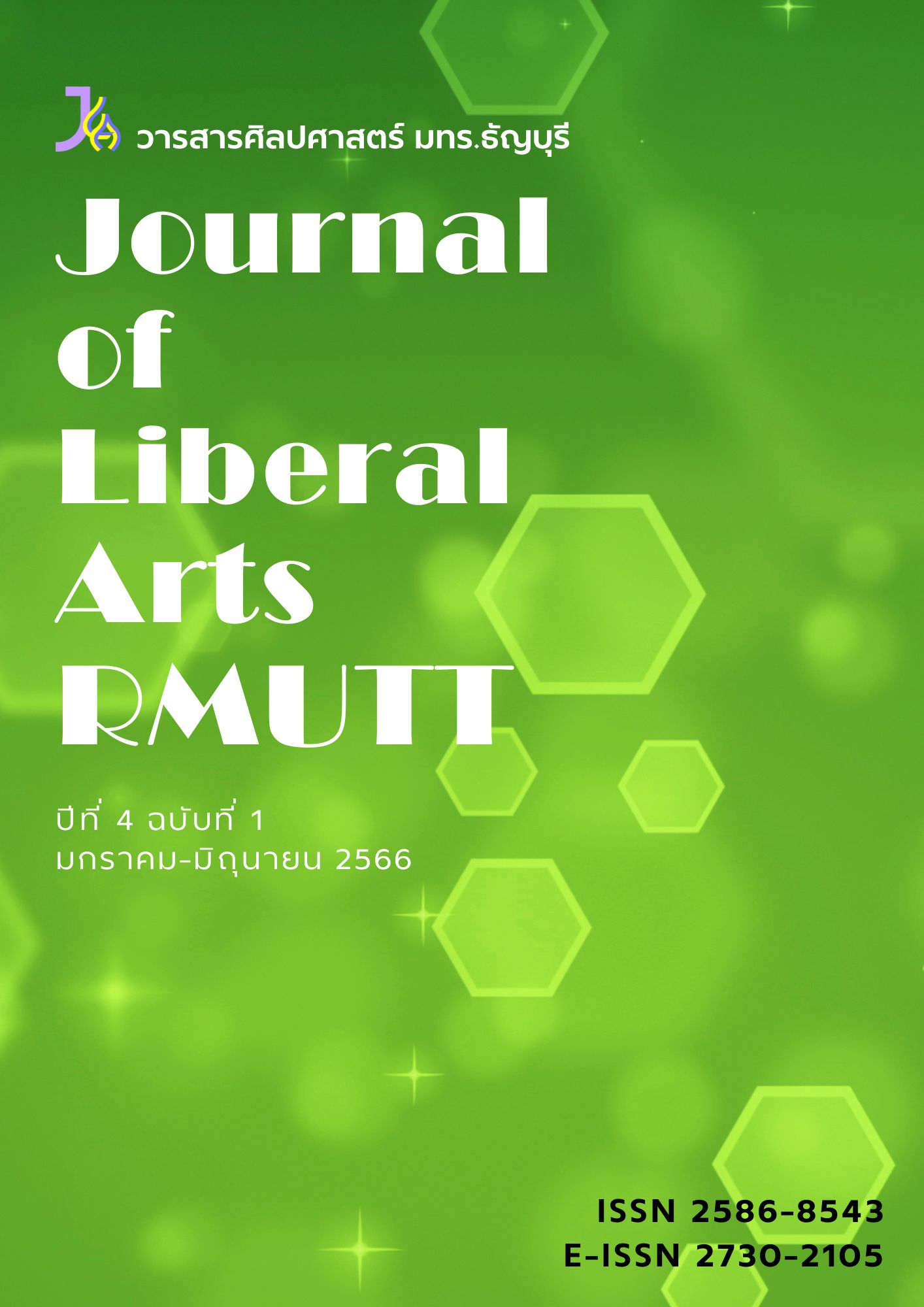The Role of Digital Media on the Thai Youth’s Political Movement
Keywords:
communication, digital media, mobilization, online activism, Thai youth movementAbstract
This comprehensive literature review examines the transformative role of digital media in the context of the Thai youth’s political movement, focusing on three significant aspects: mobilization, communication, and activism. The onset of the digital era has markedly shifted the landscape of political and social activism worldwide, and Thailand's youth movement provides a compelling case study of these evolving dynamics. The review aims to consolidate knowledge drawn from a range of interdisciplinary studies to understand how digital media are fundamentally redefining the ways in which young Thais engage in political activism. The review analyzes how digital media is effective in mobilization, allowing for a more extensive and rapid assembly of protestors than traditional methods. In the realm of communication, the research delves into how digital media amplify the reach and speed of message dissemination while simultaneously shaping the discourse of protest movements. Furthermore, the review considers how the advent of digital media has given rise to a new form of activism—one which takes place in online spaces, extends beyond geographical boundaries, and opens avenues for creative, non-traditional forms of protest. However, while the empowering potential of digital media is acknowledged, the review also raises critical questions about the potential limitations, risks, and long-term impacts of this digital media. It calls for more nuanced, empirical research to provide a holistic understanding of these dynamics within the complex socio-political context of Thailand. This review holds significance for grasping the nuances of the Thai youth movement and additionally enriches wider academic debates about digital activism in the 21st century.
References
Allcott, H., & Gentzkow, M. (2017). Social media and fake news in the 2016 election. Journal of Economic Perspectives, 31(2), 211-36.
Bennett, W. L., & Segerberg, A. (2012). The logic of connective action. Information, Communication & Society, 15(5), 739-768.
Bosch, T. E. (2020). Social media and everyday life in South Africa. London: Routledge.
Carr, N. (2011). The shallows: What the internet is doing to our brains. New York: W.W. Norton & Company.
Castells, M. (2012). Networks of outrage and hope: Social movements in the internet age. Cambridge: Polity Press.
Chong, M. (2018). The Routledge companion to media and activism. London: Routledge.
Del Vicario, M., Bessi, A., Zollo, F., Petroni, F., Scala, A., Caldarelli, G., ... & Quattrociocchi, W. (2016). The spreading of misinformation online. Proceedings of the National Academy of Sciences, 113(3), 554-559.
Flaxman, S., Goel, S., & Rao, J. M. (2016). Filter bubbles, echo chambers, and online news consumption. Public Opinion Quarterly, 80(S1), 298-320.
Fuchs, C. (2018). Social media: A critical introduction. London: Sage.
Howard, P. N., & Hussain, M. M. (2011). The role of digital media. Journal of Democracy, 22(3), 35-48.
Howard, P. N., & Hussain, M. M. (2013). Democracy's fourth wave?: Digital media and the Arab Spring. Oxford: Oxford University Press.
Human Rights Watch (2023). Stifling the Internet: Government control and repression in Thailand. Retrieved June 26, 2023, from https://www.hrw.org/world-report/2023/country-chapters/thailand
Kahne, J., & Bowyer, B. (2018). The political significance of social media activity and social networks. Political communication, 35(3), 470-493.
Jones, L. (2020). Explaining the Thai protest movement. Canberra: Australian Strategic Policy Institute.
Lee, A. Y., & Ting, K. W. (2015). Media and information praxis of young activists in the Umbrella Movement. Chinese Journal of Communication, 8(4), 376-392.
Lynch, M. (2012). The Arab uprising: The unfinished revolutions of the New Middle East. New York: Public Affairs.
Morozov, E. (2011). The net delusion: The dark side of internet freedom. New York: Public Affairs.
Primack, B. A., Shensa, A., Sidani, J. E., Whaite, E. O., Lin, L., Rosen, D., ... & Quesnel, V. (2017). Social media use and perceived social isolation among young adults in the US. American Journal of Preventive Medicine, 53(1), 1-8.
Rattanakorn, P., & Thaweesit, S. (2020). Thailand’s youth protests and the digital information war: Emerging ‘smart mobs’? Media and Communication, 8(2), 425-435.
Samuel, A. (2004). Hacktivism and the future of political participation. Unpublished doctoral dissertation, Harvard University.
Sombatpoonsiri, J. (2017). Online disinhibition and the unleashing of Thai trolling culture. Journal of Psychosocial Research on Cyberspace, 11(1), 56-72.
Suksamran, N. (2022). Social media and the formation of collective identity in the Thai youth movement. Journal of Social Media Studies, 5(2), 35-47.
Taweesin, T. (2023). Streaming dissent: Live streams and the Thai youth movement. International Journal of Communication, 17(2023), 1530-1550.
Thai PBS World (2020). Understanding Thailand’s evolving hard-line stance on dissent. Retrieved June 26, 2023, from https://www.thaipbsworld.com/
Tomasello, F. (2023). From industrial to digital citizenship: rethinking social rights in cyberspace. Theory and Society, 52, 463–486.
Tufekci, Z. (2017). Twitter and tear gas: The power and fragility of networked protest. New Haven, CT: Yale University Press.
Turkle, S. (2011). Alone Together: Why we expect more from technology and less from each other. New York: Basic Books.
Tuwaphalangkun, N. (2018). Social movements in the digital era: A case study of opposition to the draft of the Criminal Immunity Royal Decree and resistance to the Single Gateway system. Journal of Journalism, 11(1), 93-116.
Wang, Z., Liu, J., & Zhang, X. (2023). Digital divide and mobilization in social movement: An analysis of Thai youth movement. International Journal of Sociology and Social Policy, 43, 36-61.
Wong, S. (2021). Mobilizing the #MilkTeaAlliance: social media and the Thai youth movement. Journal of Asian Studies, 80(3), 611 – 629.
Zuboff, S. (2019). The age of surveillance capitalism: The fight for a human future at the new frontier of power. London: Profile Books.
Downloads
Published
How to Cite
Issue
Section
License
Copyright (c) 2023 Journal of Liberal Arts RMUTT

This work is licensed under a Creative Commons Attribution-NonCommercial-NoDerivatives 4.0 International License.









